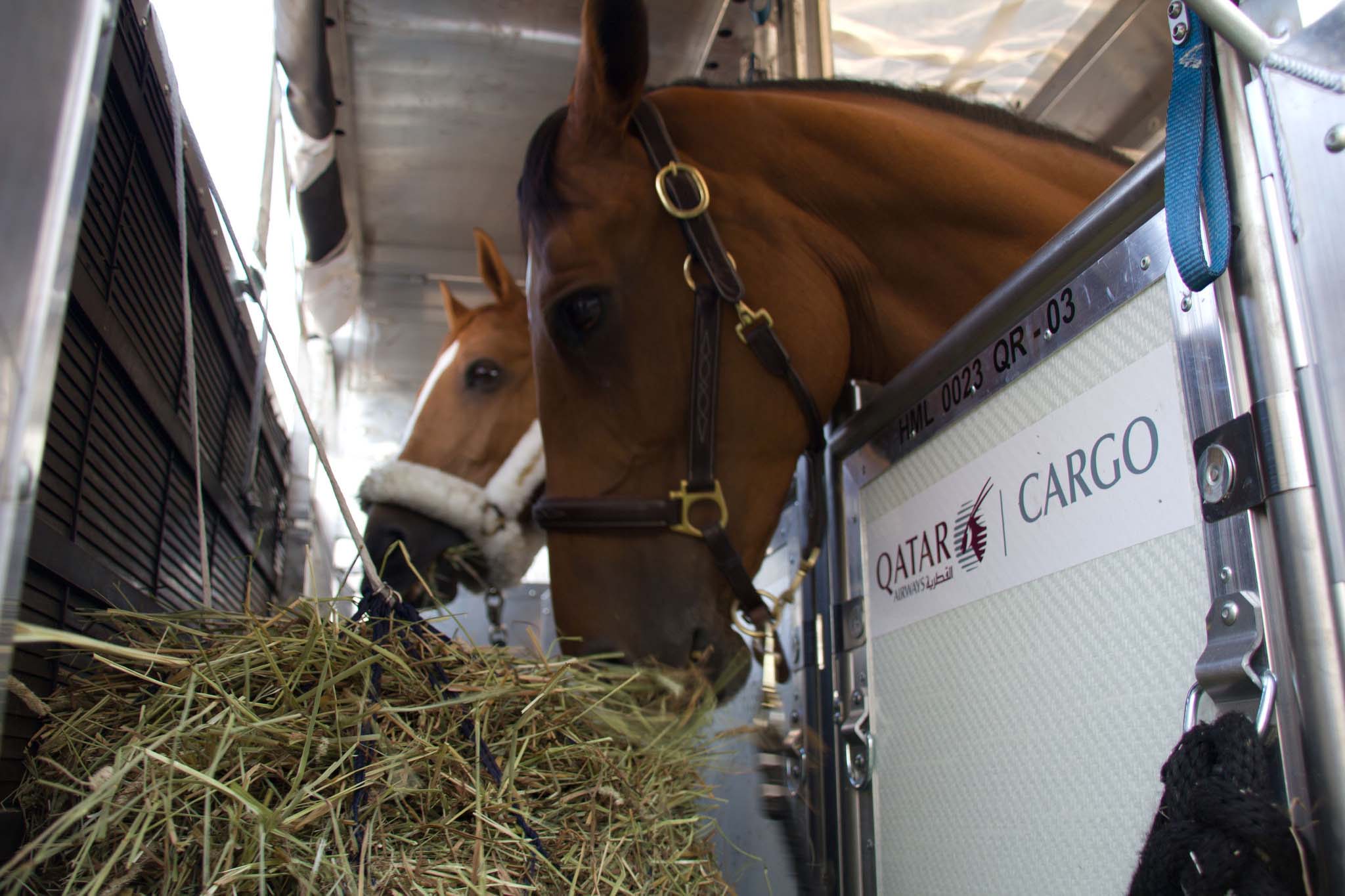
Qatar Airways is promoting its services for the carrier’s non-human passengers as it continues to pursue growth in its cargo division.
The airline has launched QR Live, a service focused on the live transport of animals, including world-class race horses as well as domestic cats and dogs.
Although Qatar’s national carrier already offers well-established animal transportation options – and a specialist equine service – the launch of the QR Live brand signals that the airline is keen to expand this offering further.
The move comes eight months after Qatar Airways became the third-largest cargo airline in the world, and coincides with news that it intends to become a “strong player” in three new air cargo markets: Trans-Pacific, Australia and South America.
Animal transport service
Hamad International Airport‘s cargo terminal, which started operating in December 2013, is well kitted-out to cater for animal passengers.
According to Qatar Airways, it has a 4,200-square-meter air-conditioned live animal facility with special stalls and holding areas for horses, an animal health care service, experienced handlers and a 300-square metre paddock.

The airline is particularly focused on its equine cargo services, boasting that it offers “red-carpet treatment and world-class service” for thoroughbred horses, with seats provided for grooms on board its freighter aircraft.
Despite this focus on its equine business, Ulrich Ogiermann – Qatar Airways’ head of cargo – told journalists at a news conference in China yesterday that the airline was committed to providing all animals, whether they are valuable horses or domestic pets, with levels of care that meet international standards:
“We ensure the animals receive special care and treatment all the way, on the ground as well as in the air. As a committed member of IATA, we comply with the Live Animal Regulations, which set out strict guidelines regarding the welfare of animals during transportation” he said.
The airline is also keen to point out that it is committed to stopping the illegal trade in animals, both alive and dead.
In March this year, it was one of 40 companies worldwide to sign an agreement to help the transportation industry crack down on the trade of illegal wildlife products.
Cargo growth continues
Cargo is becoming an increasingly important part of Qatar Airways’ business.
Last November, the airline announced that it was now ranked as the world’s third largest air cargo operator, according to IATA figures.
At the time, Qatar Airways CEO Al Baker said that cargo accounted for some 25 percent of the airline’s total revenue.

Qatar Airways’ rise in the rankings has been rapid. Qatar Airways Cargo saw a 37.5 percent increase overall in tonnages last year. Imported cargo into Doha increased by 29 percent, exports increased by 10 percent and transit cargo at the hub increased by 39 percent.
This is positive news for the carrier, which has recently been forced to cancel a significant number of passenger flights due to aircraft delivery delays.
New markets
Qatar Airways flies cargo to more than 40 50 destinations, eight of which are freight only.
It currently operates a fleet of nine Boeing 777 Freighter aircraft, eight Airbus 330 freighters and two Boeing 747 freighters, and it expects to receive three more specialist aircraft by next year.
At the press conference in China, Ogiermann emphasized Qatar Airways’ further commitment to growth by seeking out new markets around the world:
“There are still areas we have not yet targeted to their full potential,” he said. “In 2017, we will target areas such as Transpacific, Australia and South America – do not be surprised if you see us becoming a strong player in all these markets in the next nine months.”
A second cargo terminal is currently being built at Hamad International Airport which should double the capacity of cargo the airport can handle.
This new facility is scheduled to open in 2018.
Thoughts?







